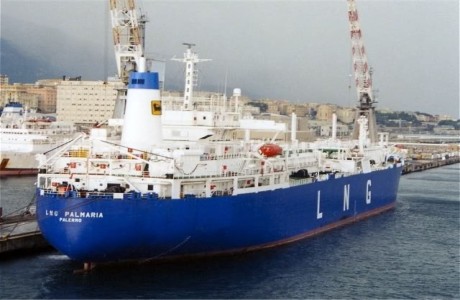The prospects for Nigeria’s long-stalled Brass LNG project appear to have improved in recent months, but BG Group – one of the scheme’s planned offtakers – confirmed this week that it has exited the project.
BG Group, BP and GDF SUEZ were the three original offtakers to line up for Brass supply, with each signing a memorandum of understanding (MoU) in 2006 to lift 2m tonnes per annum (mtpa) from the planned 10mpta facility.
However, a BG spokesman said this week that the MoU had lapsed, adding that the Brass project no longer was part of its LNG supply plans.
The US market had been the principal target for the three offtakers. However, the subsequent change in the global market dynamics brought about by the US shale revolution has seen BG focus on targeting Asian buyers through its Queensland Curtis LNG project, while exploring other potential Atlantic Basin liquefaction projects in the US Gulf and in Brazil.
A BP spokesman could not confirm whether its MoU had been rescinded, although ICIS Heren understands that GDF SUEZ has extended its preliminary supply accord with Brass to the end of 2011.
In the meantime, a Brass representative acknowledged that the existing supply agreements were “under review”, but claimed that a number of other buyers had expressed an interest in the project.
“There will definitely be some changes to the offtake arrangements, but this is not to say that all of the companies that hold the MoUs are out of the project,” he said.
Asian interest renews momentum
One prospective change in Brass’s marketing arrangements could come if and when the Nigerian National Petroleum Company (NNPC) finalises a plan to raise part of its funding commitments by reducing its stake in the project from 49% to 30%.
The state-run company said in a statement last month it wants to achieve this aim by offering a 4% equity stake in the project to LNG Japan, as well as stakes to Japanese trading house ITOCHU (3%) and US utility Sempra Energy (2%).
When contacted, Sempra confirmed it had been named as a strategic investor, while the two Japanese firms declined to comment.
Aside from receiving equity LNG from the project, negotiations with the Japanese trading houses are also understood to extend to offtake agreements, underlining the shift in focus of Brass LNG’s likely marketing arrangements from the US and Europe to Asia and Europe.
In return, NNPC said in a statement it is seeking a $2bn funding package from a consortium of Japanese banks led by the state-run Japan Bank for International Cooperation (JBIC), on “very favourable terms”.
A spokesman from JBIC declined to comment, although ICIS Heren understands financing discussions for the project have advanced in recent months.
In addition, the Nigerian states of Rivers and Bayelsa – where Brass is located – are each expected to receive a 5% stake in the project from NNPC’s equity.
Project short of reserves target
The Brass representative said it is now evaluating bids on the offshore, onshore and subsea pipeline engineering, construction and procurement (EPC) packages, and was confident of proving up the 11.7 trillion cubic feet (tcf) – or 330 million cubic metres – of reserves needed to underpin the project. NNPC said in the statement that it is aiming to take a final investment decision (FID) in the first quarter of 2012. The 2012 FID target has been confirmed by project shareholder Total.
“A lot of progress has been made on the reserves front,” the Brass source said. “The exact feedstock contribution between the shareholders is still a work in progress, but we are confident that we can prove up the necessary reserves needed before taking a FID.”
The members of the Brass consortium – which in addition to NNPC include Total, Italy’s Eni and US major ConocoPhillips, with 17% equity each – are expected to supply around 8.4tcf of the feedstock between them.
The remaining 3.3tcf of feedstock gas will come from “third-party suppliers”, said the Brass representative, which could include potential suppliers such as Shell and Chevron, both currently shareholders in the rival Olokola LNG (OKLNG) project.
The progress of Brass – even without the regulatory and fiscal framework provided by the Petroleum Investment Bill, which is yet to be approved by parliament – is likely to lead to other Nigerian projects such as Nigeria LNG’s planned train 7 expansion and the 12.6mtpa OKLNG scheme being kicked back into the long grass, although for now the BG Group spokesman said it still retains its 14.25% stake in OKLNG.



